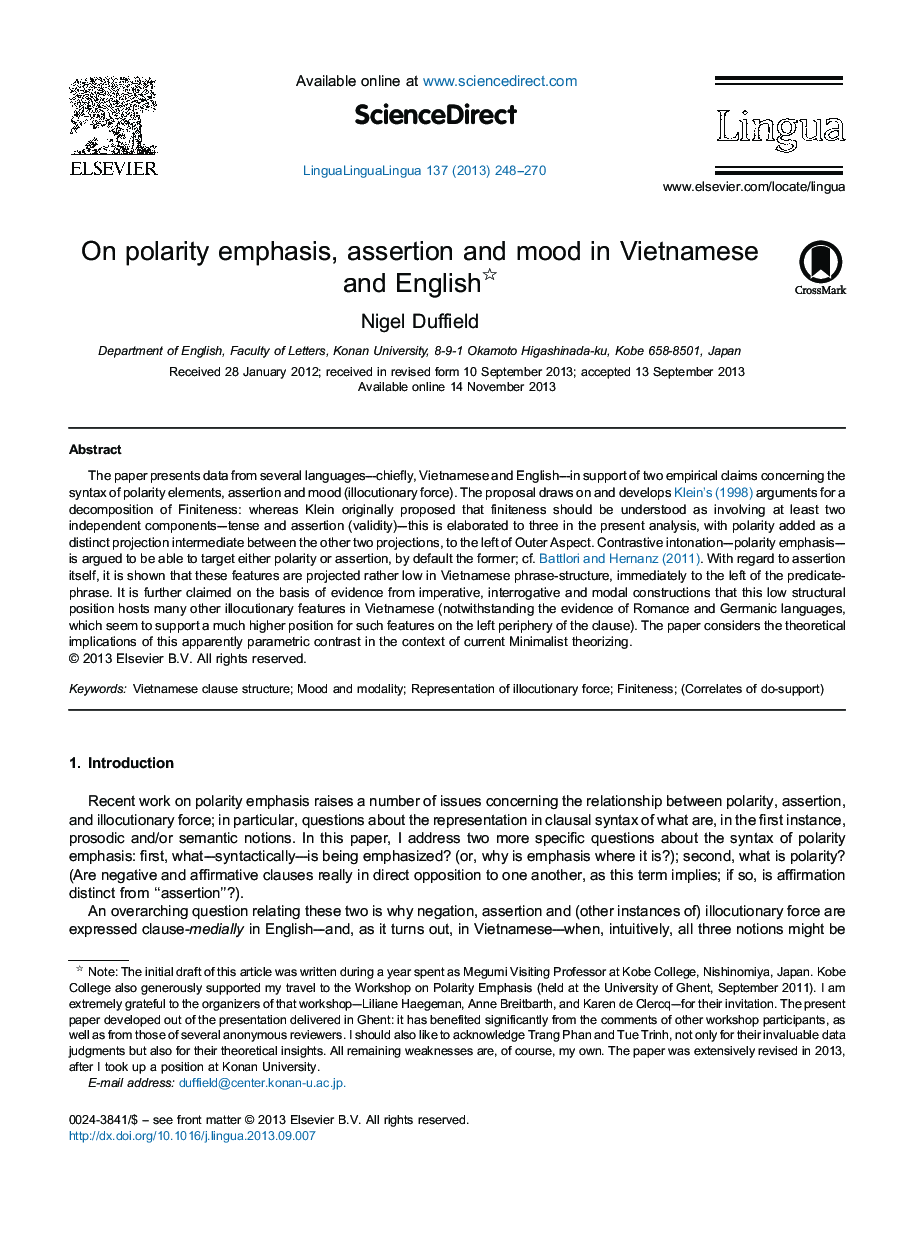| Article ID | Journal | Published Year | Pages | File Type |
|---|---|---|---|---|
| 7298625 | Lingua | 2013 | 23 Pages |
Abstract
The paper presents data from several languages-chiefly, Vietnamese and English-in support of two empirical claims concerning the syntax of polarity elements, assertion and mood (illocutionary force). The proposal draws on and develops Klein's (1998) arguments for a decomposition of Finiteness: whereas Klein originally proposed that finiteness should be understood as involving at least two independent components-tense and assertion (validity)-this is elaborated to three in the present analysis, with polarity added as a distinct projection intermediate between the other two projections, to the left of Outer Aspect. Contrastive intonation-polarity emphasis-is argued to be able to target either polarity or assertion, by default the former; cf. Battlori and Hernanz (2011). With regard to assertion itself, it is shown that these features are projected rather low in Vietnamese phrase-structure, immediately to the left of the predicate-phrase. It is further claimed on the basis of evidence from imperative, interrogative and modal constructions that this low structural position hosts many other illocutionary features in Vietnamese (notwithstanding the evidence of Romance and Germanic languages, which seem to support a much higher position for such features on the left periphery of the clause). The paper considers the theoretical implications of this apparently parametric contrast in the context of current Minimalist theorizing.
Keywords
Related Topics
Social Sciences and Humanities
Arts and Humanities
Language and Linguistics
Authors
Nigel Duffield,
